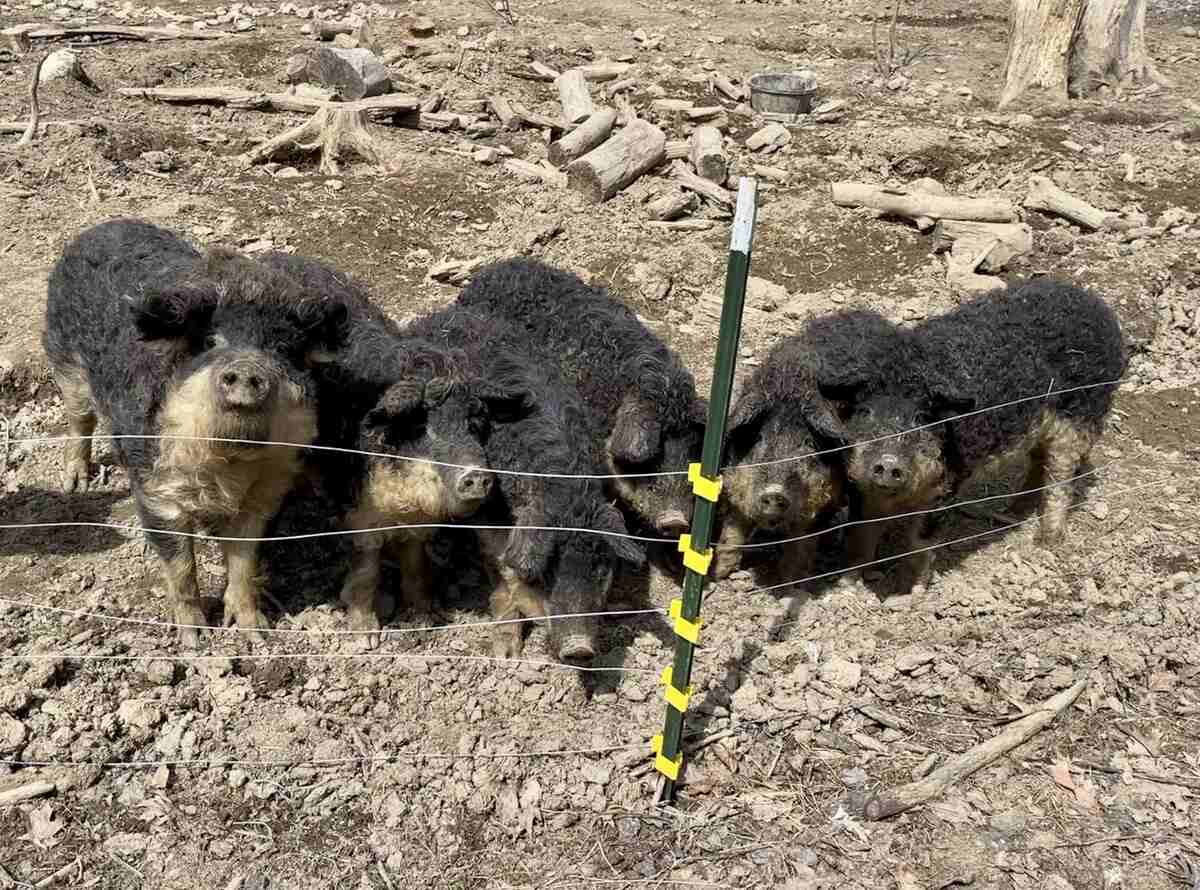
- HOME
- ABOUT US
- WHAT WE DO
- SUBSTANCE
USE PREVENTION - NUTRITION
EDUCATION - HEALTHY FOODS
FOR THE COMMUNITY
- SUBSTANCE
- HOW WE CAN HELP
- NEWS & EVENTS
- GET INVOLVED
Blog
April 17, 2023
Bringing Food Home

Maisie Sturtevant, of the Switchback Farm in Nobleboro, has deep roots in Damariscotta Mills. She grew up summering at the well-appointed Wriggins farm on Bayview Road, where her grandparents, Ada and Tom Wriggins, lived and farmed.
“I actually slept in the red barn, with mosquito netting and a big, Charlotte’s Web barn spider,” she explained to me, while we basked in the sun at her Nobleboro farm. “I was just a kid from Massachusetts that would come up and visit my family, and I hoped someday to live here.”
In the distance, we can see the roughly 70-acre parcel of land her grandparents farmed, now protected from development in a conservation easement.
Maisie and her husband Matt were not originally farmers by trade. Matt was an electrician in Massachusetts, and Maisie a software analyst.
“In 2017 we saw this house for sale that’s abutting the land I grew up on, so we went for it,” Maisie explained. The 10-acre property, densely wooded with pine trees, had potential for keeping livestock so they made plans to clear the land shortly after purchase. They started their farming endeavor with two Mangalitsa pigs in 2018, and quickly fell in love with the breed.
Mangalitsa pigs (pronounced mahn-ga-leets-ah) have course, thick hair and resemble sheep at first glance. Their fleece can be blonde, black, or red, and all three varieties are found at the Switchback Farm. The breed boasts health benefits to consumers, with meat rich in omega 3 and 6 fatty acids, vitamins, and minerals. In fact, their meat is richer in omegas than salmon!
“It’s more of a red meat, marbled and called the Kobe beef of pork,” Matt explained. “It has more polyunsaturated fatty acids and antioxidants than regular pork, by a long shot, and the fat is so creamy it doesn’t congeal.”
“Society has been taught that fat is bad for you, but this fat is a good fat for you,” Maisie added.
The Mangalitsa breed, native to Hungary, was almost lost to extinction a few decades ago, when less than 200 pigs remained. A Hungarian geneticist started to breed them in the 90’s, and in 2010 the blonde variety came to the states.
Their reemergence in the US is largely due to Maine farmers embracing the breed. Their coarse hair makes them well suited to our harsh winters, and they help clear land by rooting out stumps and bringing rocks to the surface.
“Mangalitsa’s are different from factory-farmed hogs because they take two and a half years to grow to 200 pounds,” explained Matt. “Commercial feed lots produce these massive pigs that grow in 4 months, living in small spaces and pumped with growth hormones. That’s one way to achieve 79 cent per pound meat for the masses.”
The Switchback farm practices sustainable and organic farming, and they provide plenty of space for their livestock to roam. They now have 50 Mangalitsa’s, and they keep costs as low as they can by tapping into the local food system for food waste.
“We get food for the pigs from Lincoln Academy, Main Street Grocery, the Newcastle Food Pantry, and you,” said Matt, referring to the food waste we generate at the Community Food Hub. Good Shepherd Food Bank has supplied food waste in the past for them, but that involves trekking to Auburn each time to pick it up.
They plan to grow more food for the pigs this year in their vegetable plot, which will help keep production costs down. They hope to price their products so locals relying on EBT/SNAP benefits can purchase from them as well as the summer wealth. They want everyone to experience and appreciate the exquisiteness of the meat, not just the affluent summer residents.
On top of the Mangalitsa’s, they have 100 laying hens, Hereford cows, and beehives. Maisie is the president of the Knox and Lincoln County Beekeepers Association, maintains 12 hives on their property, and mentors other beekeepers in the area.
Sheepscot General Store in Whitefield started carrying the Switchback Farm’s products last week, and they have a booth at the Wiscasset and the Waldoboro Farmer’s Markets, which will reopen in May.
You can also purchase their products at their farm stand, located at 195 Morgan Hill Road in Nobleboro. As you can imagine, bacon is one of their most popular products, but their cured meats, like pepperoni and salami, are highly sought after for charcuterie boards. I tried their pepperoni sticks, and the meat is out-of-this-world good.
Their three kids, ranging in age from 6 to 18, support the farm by growing herbs, making baked goods, and helping with endless farm tasks. Matt lends his skills to the local fire department where he is training to be a Fire Fighter, and they both belong to the PTO at the Nobleboro Central School.
This family is rooted in their community, and I urge you to support them by trying their products.
If you have questions or comments, feel free to email Matt and Maisie at TheSwitchbackFarm@gmail.com. Follow them on Facebook and Instagram to stay in the loop.
 MCD Global Health
MCD Global Health